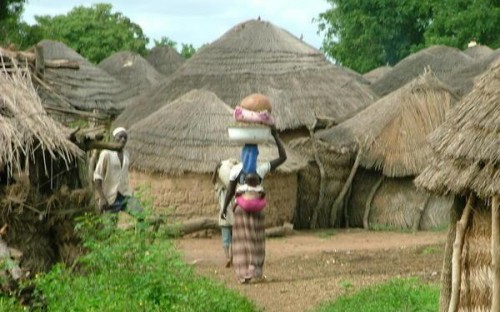The groundbreaking new initiative is already helping hundreds of people in Ghana to capitalise on their business potential and expand their profit margin — giving them a stable financial income and enabling them to work themselves out of poverty.
Chris first visited Ghana as part of a SIFE mission which was to set up a cooperative for beekeepers to ensure they get a fair price for their product. During his visit he talked to many local business people — but the story was always the same — while successful in their own right, they were being held back from further expansion by a lack of capital funding and limited access to financial support. He learned that loan interest rates in the country are prohibitively high — mainstream banks offer annual rates of around 35 per cent, while private finance companies’ rates can be anything up to an astronomical 50 per cent a year.
The CEDIS scheme encourages Ghanaian entrepreneurs to draw up a business plan and uses capital from charitable fundraising to offer them loans of just two per cent per month over a six month period. Since its launch in October last year it has already helped more than 250 individuals and currently boasts a 100 per cent repayment rate.
Chris Skilton said: “There are literally millions of Ghanaians without access to legitimate financial services. With the support of the University and the SIFE team we have already been able to reach out to several hundred entrepreneurs. In the coming years we hope to offer thousands of individuals the same opportunities to develop their businesses and support their families.”
Chris has enlisted the help of the current University of Nottingham SIFE team to get the scheme up-and-running. Members of the team got the chance to meet people like Amma Yahaya Nabila, who runs a rice processing business and has had a loan of 100 Ghana CEDIS (around £50) and has used the return on her investment to give her children an education.
The scheme has benefitted from a £17,500 grant from the University’s annual development fund — £7,500 covered the cost of the trip to Ghana, while the students will use the remaining £10,000 to develop business ventures in the UK and Ghana. These businesses will allow CEDIS to expand its capital base and become more sustainable over time.
Chris says, “Providing micro-credit is like walking a tightrope as you try to balance helping the poor with achieving the ‘best practices’ of financial sustainability. We are on a challenging journey but we have enjoyed amazing support from a lot of people and organisations including the University of Nottingham. I am confident we can continue to make a positive impact as we continue to grow and learn!”
RECAPTHA :
4a
f2
aa
2b



 1
1 



Comments.